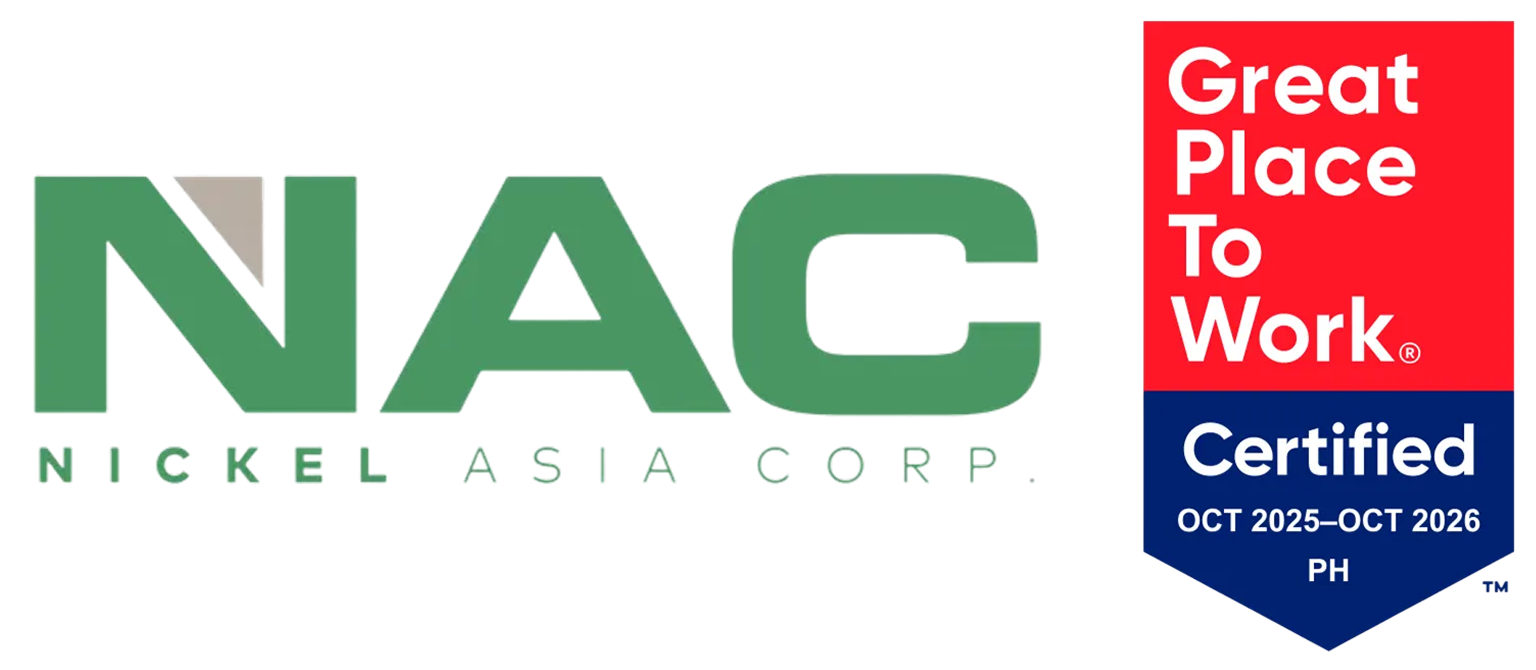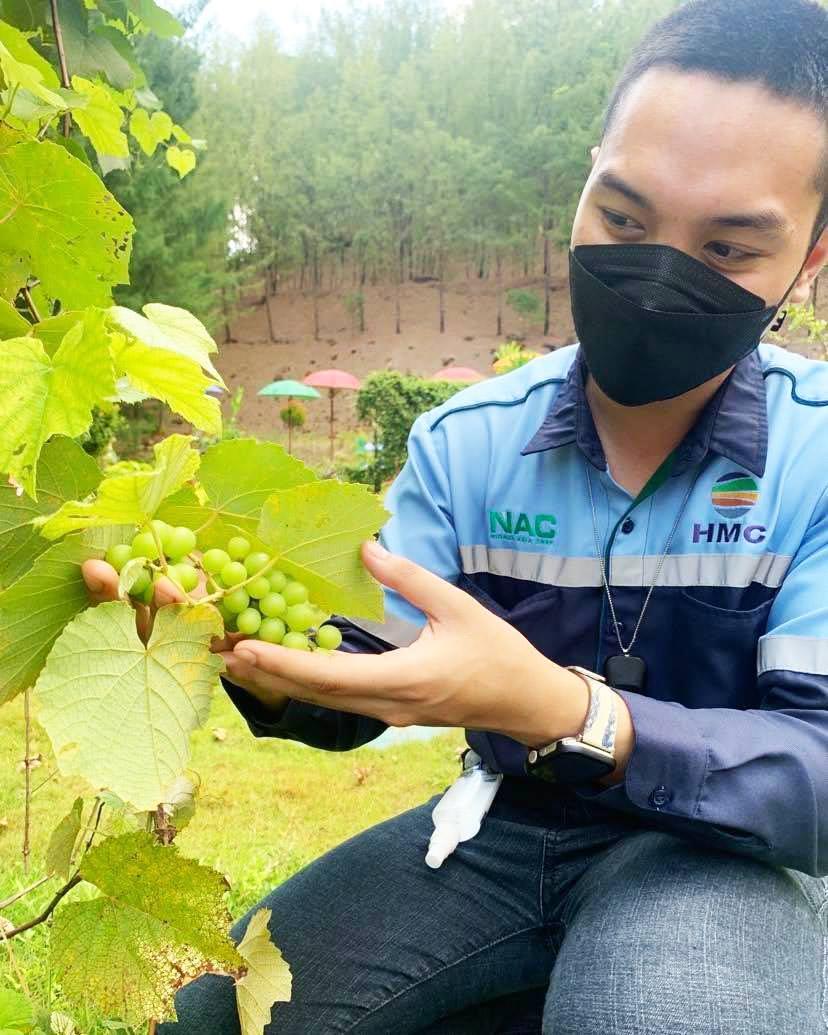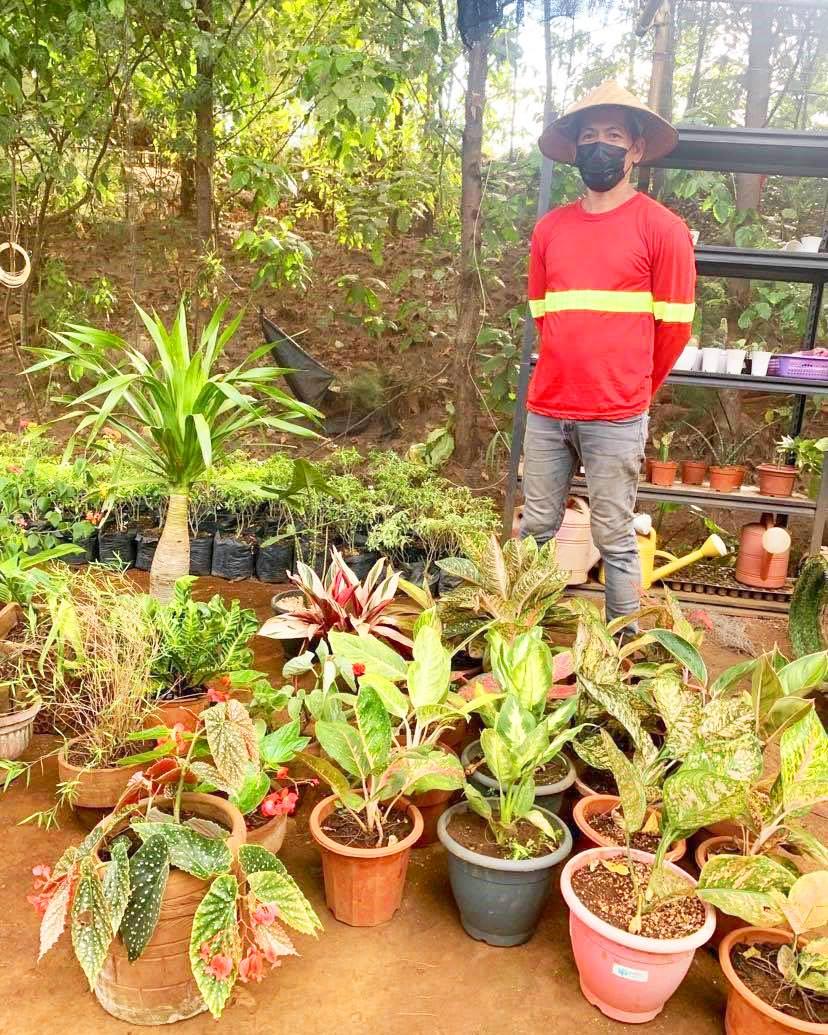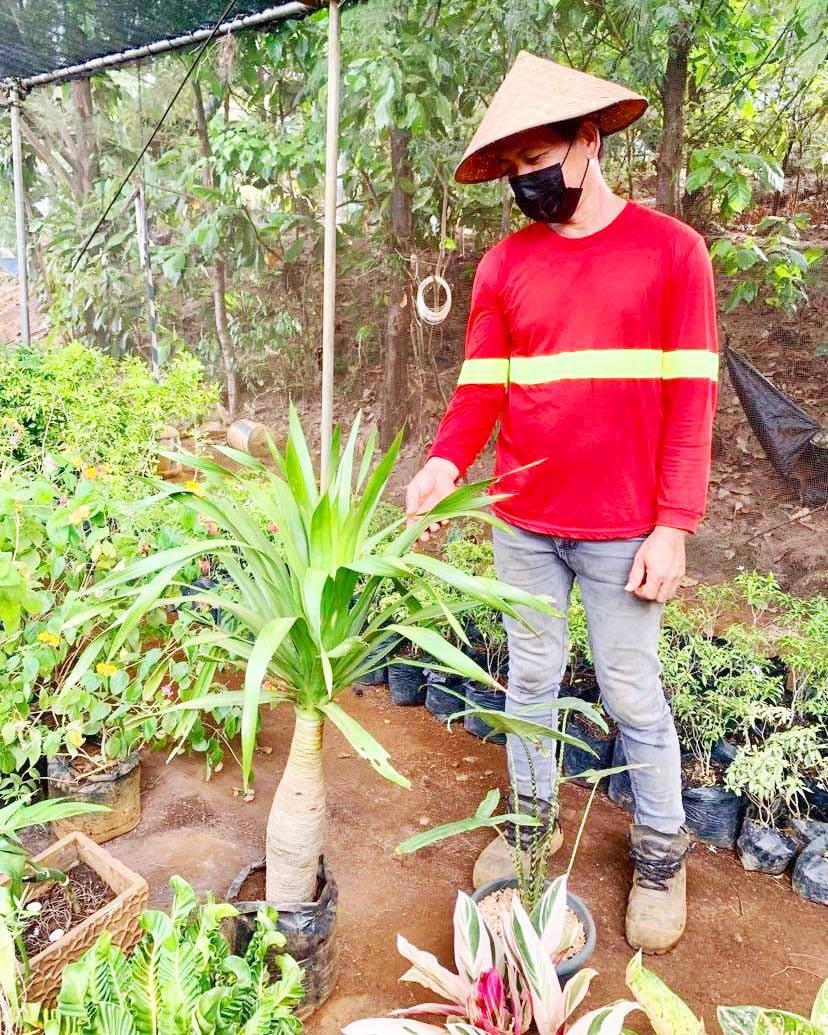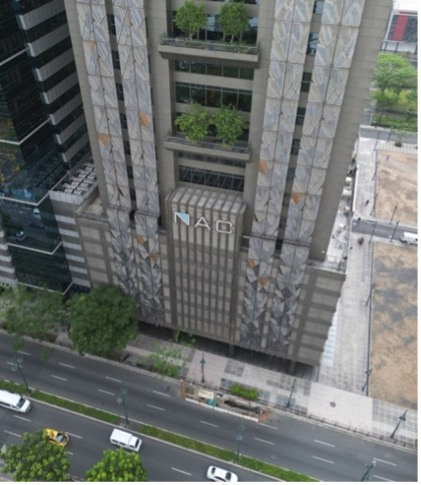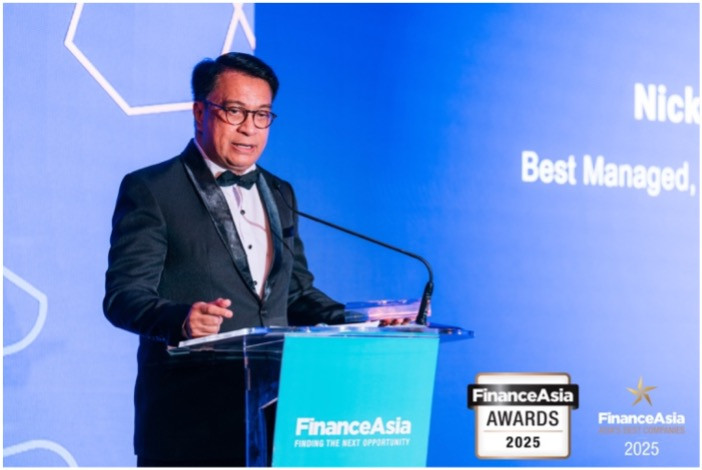The kind of soil in a mining area is lateritic – reddish clayey, rusty, hard when dry, often rocky – making it challenging to grow anything, much more ornamental plants.
Reprinted from Manila Standard — September 16, 2021
The kind of soil in a mining area is lateritic – reddish clayey, rusty, hard when dry, often rocky – making it challenging to grow anything, much more ornamental plants.
But long before the “plantitas and plantitos” craze became a thing, the environment protection and enhancement team of Hinatuan Mining Corp. (HMC) in Surigao del Norte, subsidiary of Nickel Asia Corp. (NAC), has been propagating expensive and exotic ornamental plants as part of the mining company’s rehabilitation program. And for fun, HMC gives away some of these plants as gift to visitors at the mine site.
Agriculturist Welsie Barro, at first, couldn’t identify some of the ornamental plants before the “plant craze” heightened. He would Google them and he, and his supervisor, HMC Forester Earl John A. Gascon, would have fun identifying and comparing the species they have in the mine site with those in the internet with expensive price tag.
“We don’t sell them, we grow them for landscaping and it is exciting to know their scientific names as we show them to visitors and they would ask for a stem or two as souvenir,” Barro excitedly shares.
Barro did odd jobs before joining HMC as Agriculturist, he was first assigned to the reforestation section, then the nursery, growing seedlings, when Gascon discovered his love for landscaping and his patience in caring and managing sensitive plant species.
“I didn’t know what an agriculturist like me can do in a mining operation but here I am, growing ornamental, even medicinal, plants as part HMC’s program of building a beautiful forest in Hinatuan,” Barro muses.
HMC has already registered more than 300 hectares of rehabilitated mined-out areas, some are turned into forests, some into eco-tourism parks like the mining company’s Haleakala Garden and Anito Park where the ornamental plants mostly grow.
With the objective of fully restoring the environment that was disturbed by mining operations, HMC’s excellent knowledge on mine rehabilitation is shown by the return of botanical species, initially cleared at the beginning of mining operations, to the rehabilitated areas, complete with evidence of new native species.
“Our goal is simply to beautify the areas after they are declared mined-out and ready for re-greening and for full rehabilitation. We do landscaping to wow the communities and government regulators as part of our mandate, and then the plant craze happened and we excitedly joined the bandwagon, so to speak,” relates Forester Gascon.
Some of the “pricey” ornamental plants that HMC has been propagating are the different Aglaonema – Prestige, Creta, Pink dalmatian, Red valentine, Sparkling sarah, Red anjamani, Siam aurora, Green papaya. Also, the Yucca aloifolia, that the internet is claiming to be selling for about P3000 per adult plant; the Alocassia zebrina; and the highly-regulated Badyang or Alocassia macrorrhizos; and also among the most common, the Pothos plant.
What is evident in HMC is that throughout the entire life of the mine the state of the environment gets highest priority.
The extent of regeneration and rehabilitation at HMC is something any environmentalist can be proud of.
